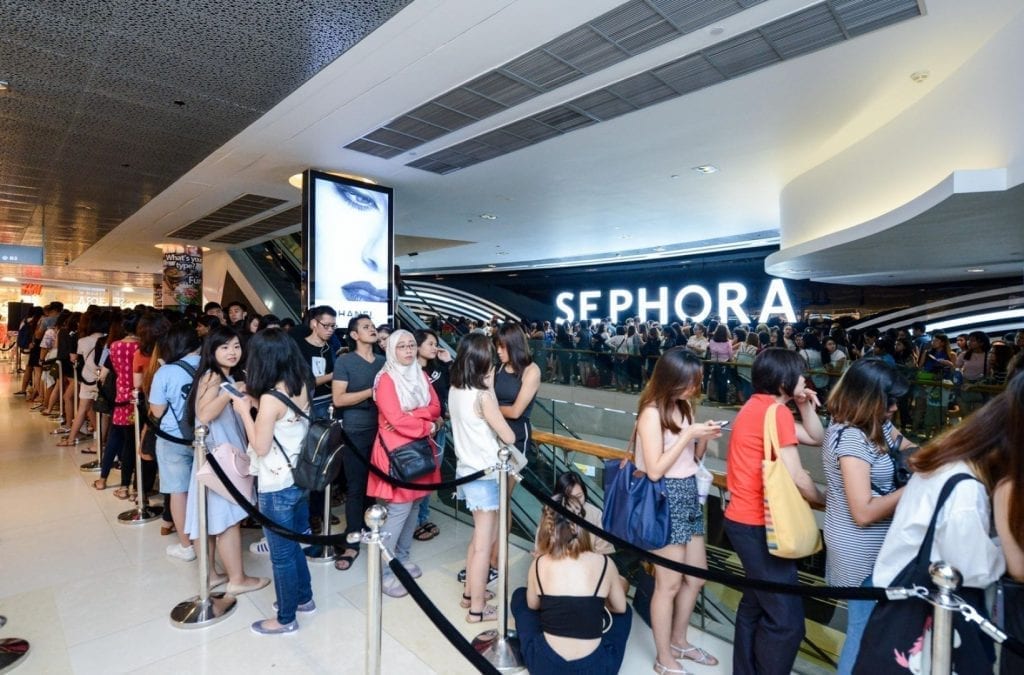
For Supergoop’s Holly Thaggard, getting into Sephora helped her small sunscreen brand look bigger than it was. Over the six years since she got onto the shelves of Sephora – the world’s largest beauty retailer with more than 2,300 stores worldwide, including more than 350 in the United States – Sephora has been especially helpful in promoting the brand, developing new products and navigating the regulatory complexities of launching in multiple countries in Asia.
That’s typical of how Sephora deals with the small brands it helps launch. Think of Sephora as part retailer, and part incubator for indie beauty brands. To get in to Sephora, startups need to have not only a strong product, but also a strong story the beauty retailer can tell. Sephora, a division of luxury conglomerate LVMH, has gotten flack for stocking LVMH brands over those of cosmetics giants L’Oréal and Estee Lauder.
But for the startup brands it works with, its execs will brainstorm on product development, help with social-media promotion, and offer a roadmap for how to go from small to big based on a template it’s been using successfully for years. “We work very closely with these brands,” says Priya Venkatesh, Sephora’s vice of merchandising for skincare and haircare. “That is the model of Sephora.”
Over the years, it’s given big boosts to indie makeup brands like Urban Decay, a cult favorite purchased by L’Oréal in 2012, and Too Faced, a popular indie brand bought by Estee Lauder last year for $1.4 billion. “Sephora is constantly looking to support new and indie brands,” says Amanda Davenport, a retail consultant at The Grayson Co. For the brands that make it onto the shelves, she notes, “they have done a lot of things right, and they have the opportunity to scale.”
Consider a startup haircare brand, Ouai (pronounced “way”) added the name of celebrity stylist Jen Atkin, who founded the line, to its products’ packaging at the urging of Sephora. “Jen didn’t want that,” says Ouai co-president Andrew Knox. “If Sephora didn’t push that, we might not have done it.” The startup, which expects sales above $20 million this year, also worked closely with Sephora on the launch of a dry shampoo foam in February, creating how-to videos and Instagram content for the retailer about it. As co-president Deanna Kangas says: “They understand small brands, and how to build small brands. That is part of Sephora’s DNA.”

